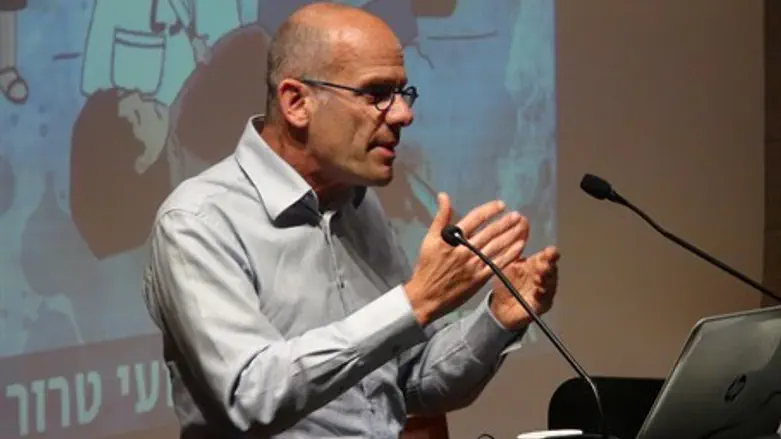
Dr. Ofer Merin, Director of the Trauma Unit at Shaare Tzedek Hospital in Jerusalem and Deputy Director of the hospital, took part in a conference on the medical ethics of terror attacks, where he spoke for the first time about the order of precedence in providing treatment.
Merin, whose trauma unit has treated countless victims of the ongoing Arab terror wave since last September, explained that at the hospital the question of who to treat first has never been raised to this day.
"Currently we can treat everyone," he noted at the conference on Wednesday.
"But when we reach the 'day of judgement' in which we won't be able to treat everyone, I think - and I say this with complete caution - that if it is impossible to treat everyone, I think there is no avoiding the moral statement that we need to give the innocents different rights than the person who harmed them intentionally."
The doctor added that the ethics committee of the Israeli Medical Association (IMA) is doing serious work and making the choices of doctors easier in the current period that is fraught with a huge number of attacks.
The IMA's ethics committee raised a fury last December, when it called to treat the most wounded person first at the scene of an attack - even if that person is the terrorist.
The ZAKA emergency response group rejected the opinion. Likewise Rabbi Yuval Cherlow, the ethics chief for the Tzohar rabbinical organization and a member of the Helsinki Committee for medical ethics, slammed the decision, as did Yisrael Beytenu chairman MK Avigdor Liberman.
Rabbi Chaim Kanievsky, one of the leading haredi authorities on Jewish law, also clarified later in December that medics should not treat Arab terrorists first if they can distinguish who the terrorist is, and ruled that if the terrorist is in life-threatening danger they should leave them to die.
ZAKA head Yehuda Meshi Zahav also took part in the medical ethics conference this week, and condemned those opining that terrorists should be treated first if they are more seriously wounded. "If we treat the murderer and the victim continues bleeding - effectively we're doing what the murderer wanted. Maybe you are taking part in murder because you didn't treat the victim," he said.
